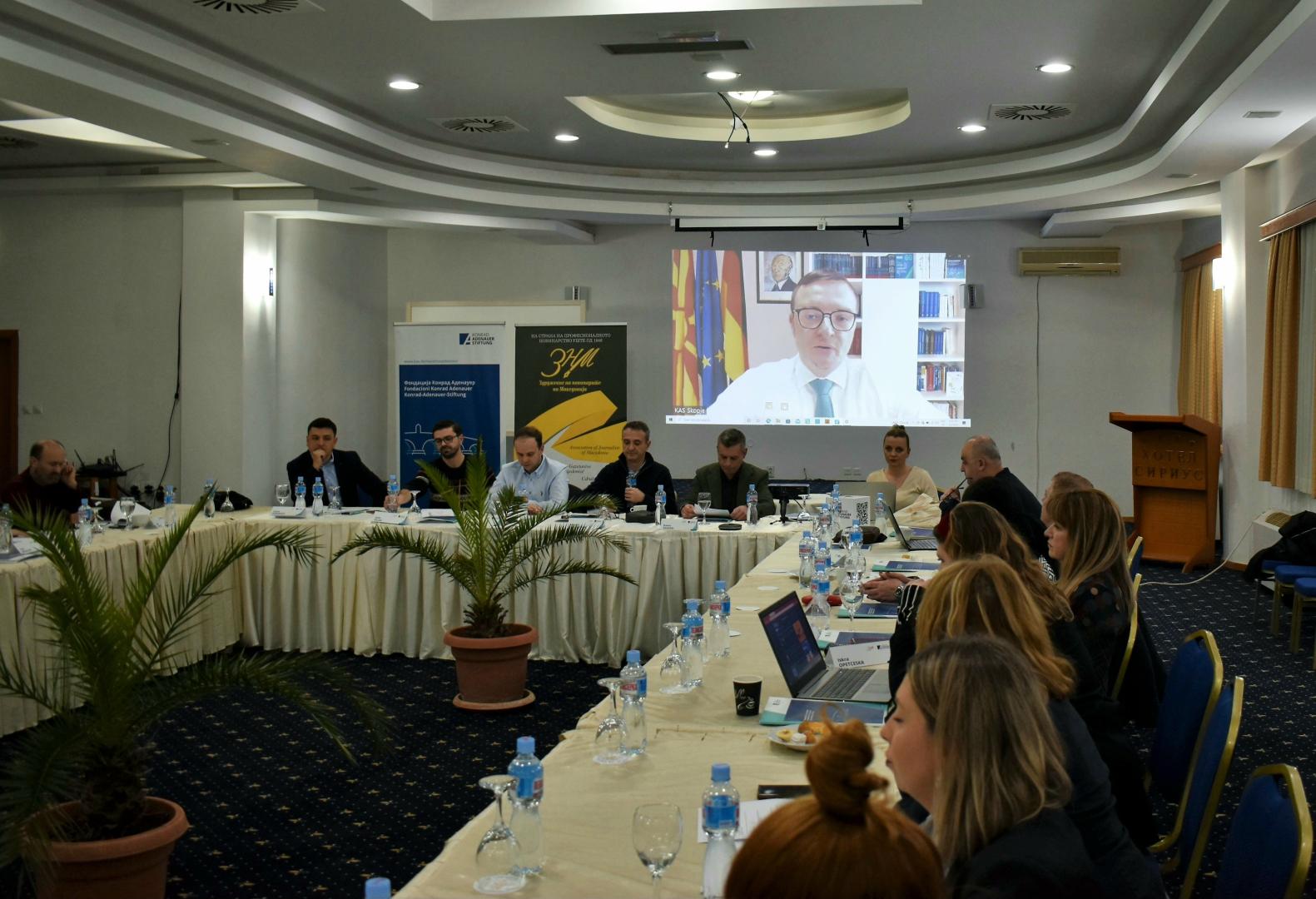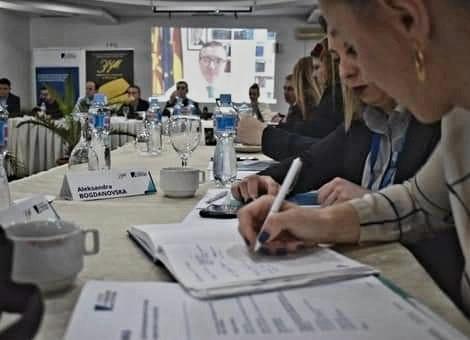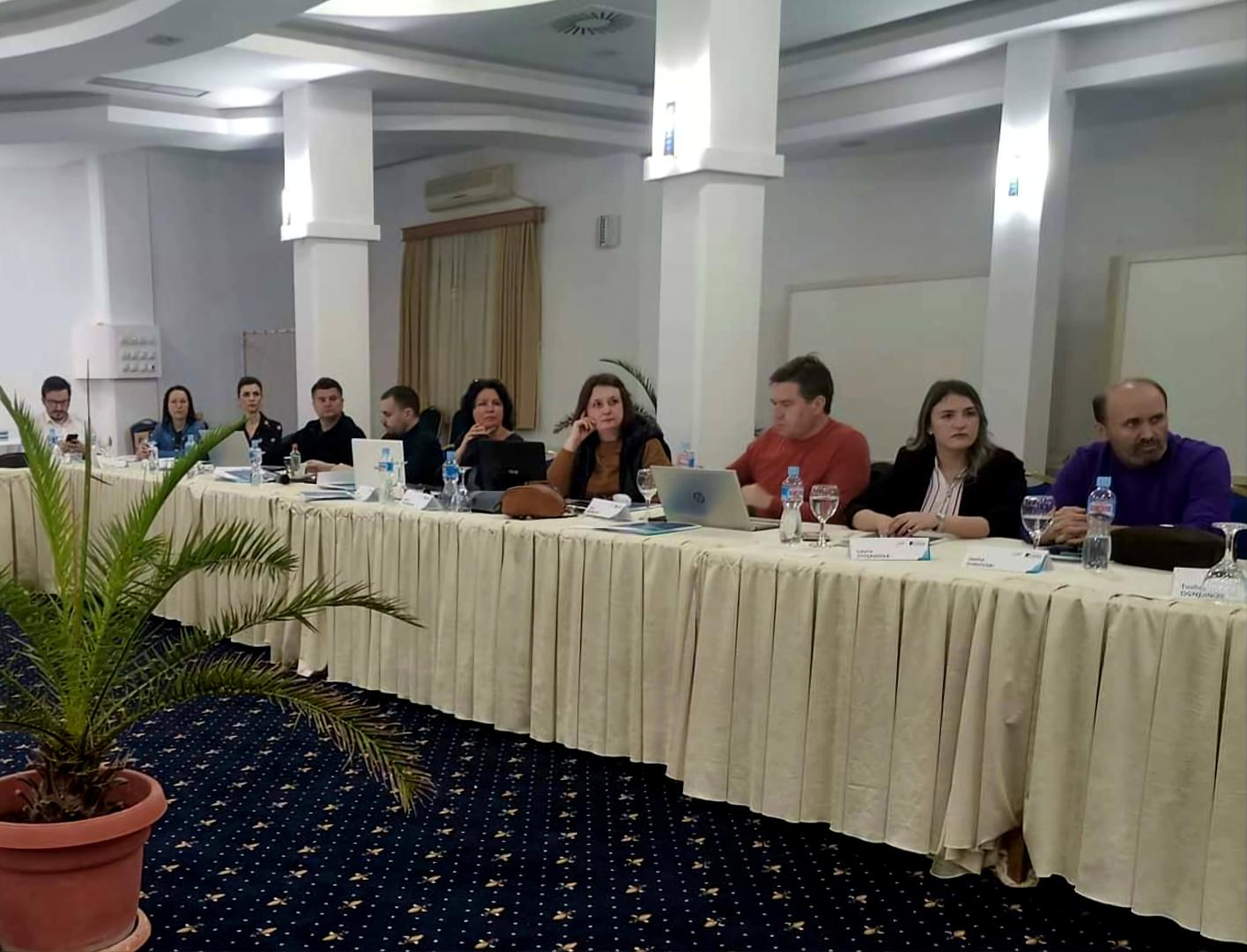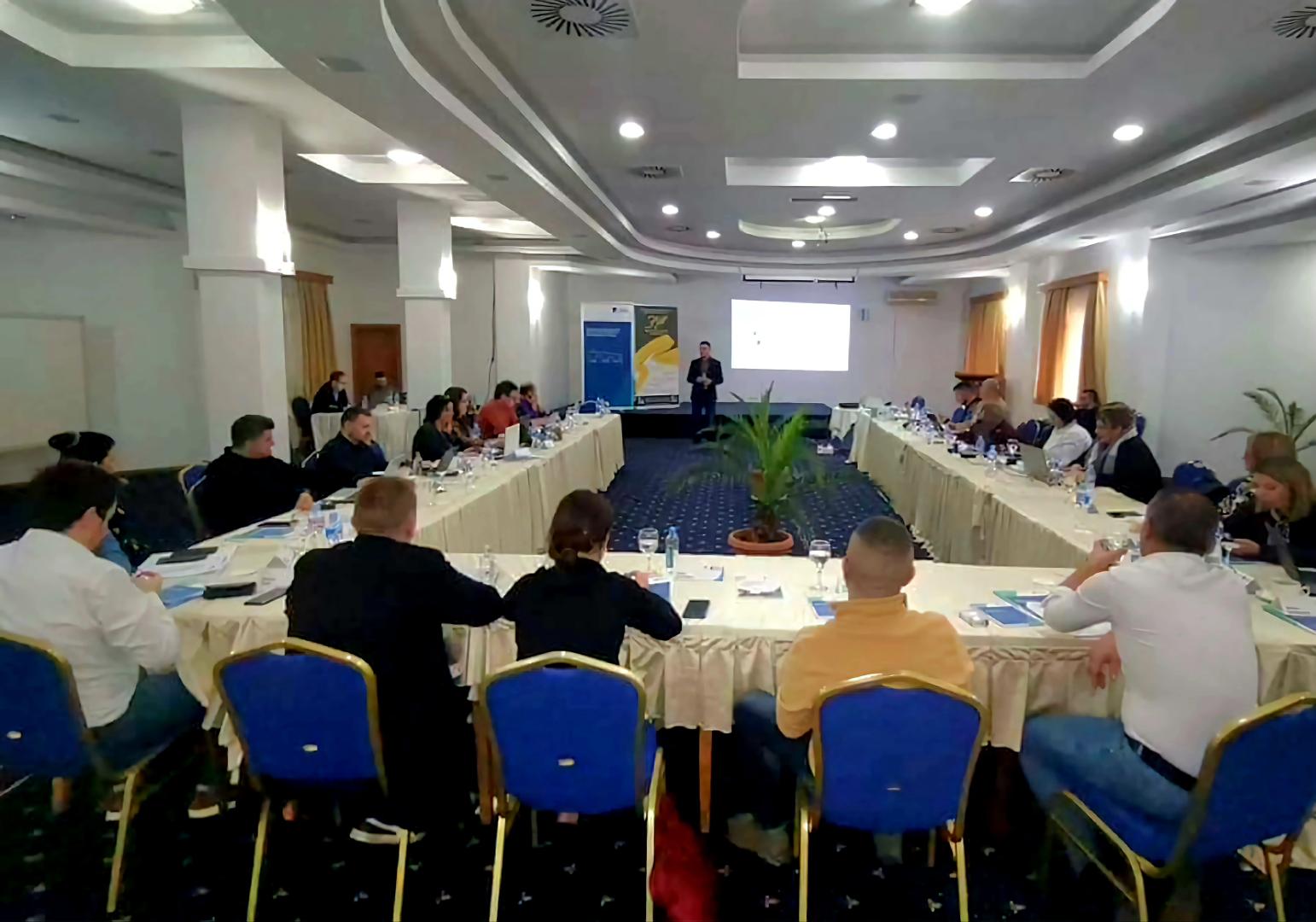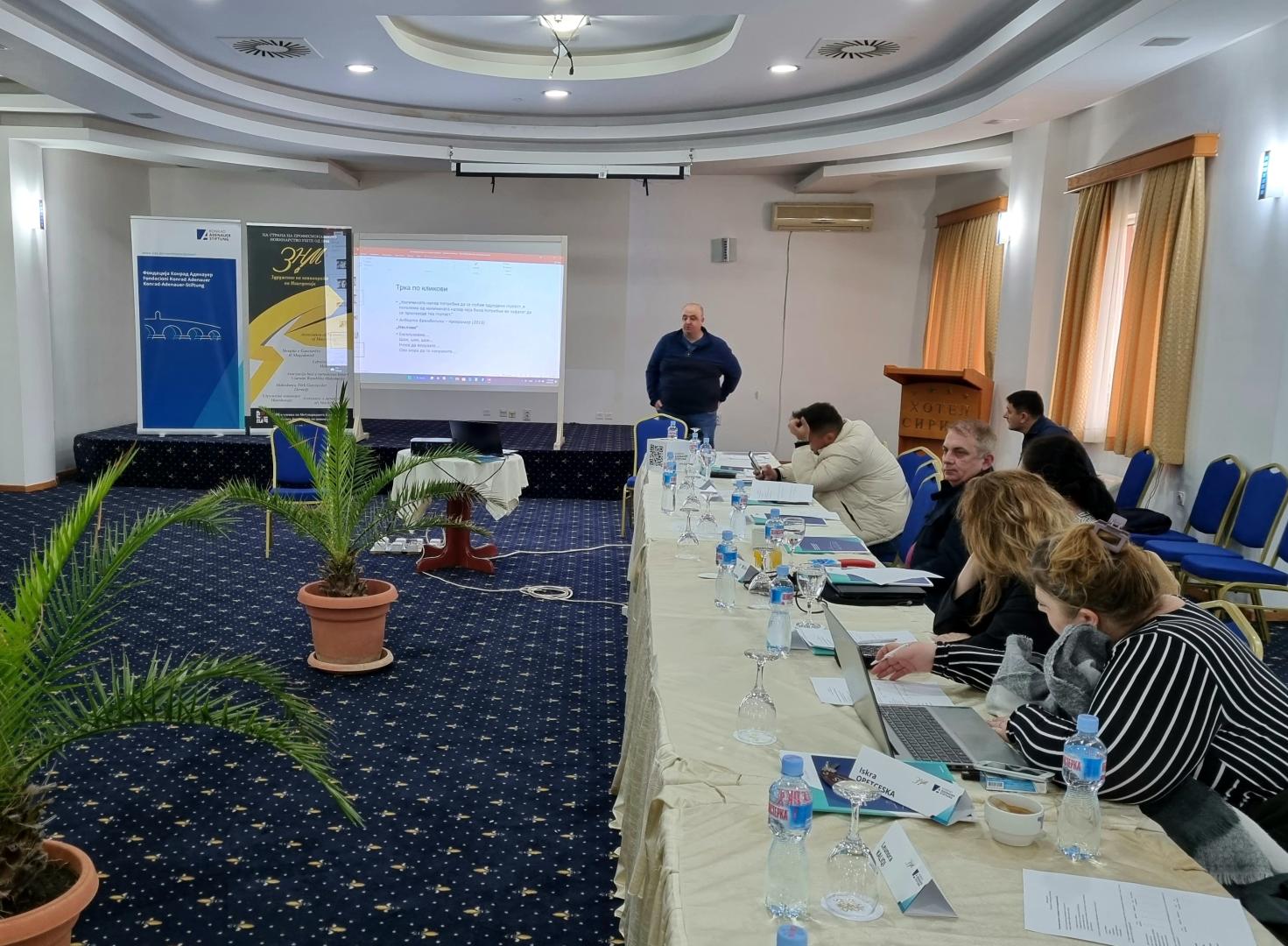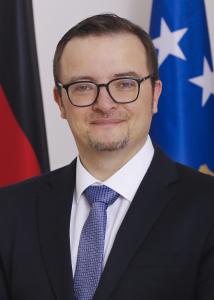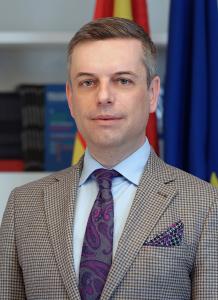During the two days, trainers Toshe Ognjanov, multimedia journalist and trainer for mobile and multimedia journalism, Sefer Selimi, founder and CEO of Democracy Lab, and Goran Momiroski, founder and editor-in-chief of the Internet portal Ohrid News, processed several aspects of this topic that affects online media: Disinformation through photography and video, verification of news stories and data through maps and visualizations, disinformation in online media and others.
Daniel Braun, official representative of KAS, opened the workshop with a video address, expressing his satisfaction with the cooperation with the AJM and welcoming the workshop participants. Here he underlined: "Disinformation is part of hybrid warfare, used especially by anti-democratic regimes and forces to destabilize free societies. Journalism must therefore be guided by quality criteria that check the adoption of news from other sources in this regard. Furthermore, media users must also critically question the origin of news and be taught how to do so, which should also be a task of modern education."
The president of AJM, Mladen Chadikovski, welcomed the cooperation with KAS and emphasized the importance of workshops of this character. In his introduction, he also pointed out "We need to promote a culture of transparency and accountability in online media. This means being open and honest about our reporting practices and providing regular opportunities for feedback and criticism from our audience. We must also be willing to admit our mistakes and take steps to correct them. By working together to promote ethical and professional standards in online media, we can ensure that the news and information we provide is accurate, fair and respectful to the people involved."
Toshe Ognjanov, one of the trainers, discussed with the journalist colleagues on the topics "Disinformation through photography and video", "Verification of news stories and data through maps and visualizations", "Fake news in social media - Bots and Trolls" and on the problem of "Social media – fake profiles". He highlighted during the discussion "Statistics show that misinformation spreads six times faster than real news. Most worryingly, they harm society, people and individuals in every possible way. We are pleased that in the past few days we have had the opportunity to talk with media professionals about topics related to disinformation and, in particular, how to detect and to decode visual disinformation. We can conclude that Macedonian media professionals have a high level of awareness and critical thinking in relation to the information that is published in the online space. I hope that the tools for easier detection in visual content will enable them to more effectively identify and remove disinformation from the media space."
Goran Momiroski portrayed the topic "Disinformation in the online media" in a local context, in order to draw a parallel between the trend at world level and in North Macedonia. Among other things, he emphasized in his presentation "The media in the new age are facing great challenges. The online space is full of information, but also of disinformation that, if not recognized, can have serious consequences. Therefore, it is the responsibility of all of us working in the online space to uphold professional standards and ethical norms regarding information. Truth and standards must take precedence over clicks, likes and statistics."
Like his colleagues, Sefer Selimi also addressed the danger of fake news and misinformation by presenting real life examples in the form of short videos and a documentary, which aroused interest and stimulated discussions among the journalists present.
It is important to note that the workshop developed an open debate on the main problems and challenges of the media in the age of the Internet and social networks, pointing out the importance of their continuation. It was also stressed that media professionals feel the need for such trainings and meetings where, in addition to sharing useful information, experiences and practices, the need for systemic solutions to prevent and protect against misinformation in the online sphere is discussed.



